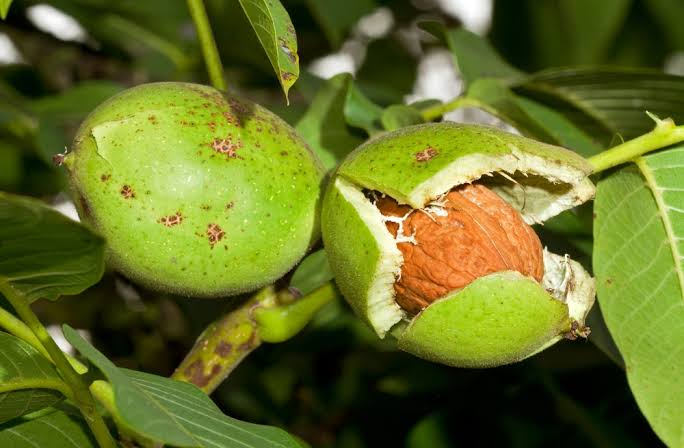Jahangeer Ganaie
Pulwama, Nov 10: The walnut industry of Kashmir, once a major revenue generating industry that would provide jobs to hundreds of people is in a shambles due to “government’s lackadaisical approach.”
People associated with this trade alleged that the government made no efforts to create infrastructure essential for the revival, survival and growth of this industry.
They said that lack of marketing facility, unchecked imports besides decline in the demand and low rates have left walnut producers and growers worried.
The said that lack of walnut market (mandi) in Kashmir and increase of imported walnuts from California in India have become major concern for the local growers, dealers and exporters.
“The majority of walnut growers in Kashmir are unable to sell their walnut produce given low demand in the ongoing festive season,” Mushtaq Ahmad, a resident of Pulwama, who associated with walnut business, told news agency—Kashmir News Observer (KNO).
He said that they haven’t sold walnuts due to less demand. “We are unable to get even our own cost as the rates are too low. This season, 60 percent of produce is unsold due to low demand,” he said. Many others who are associated with the same business, echoed similar concerns. “This trade is dying a slow death,” said Abdul Majeed, a walnut trader, from Kakapora, Pulwama.
Official figures reveal that exports from Kashmir have declined by around 300 percent from 2013 to 2015 due to the flow of Chile and California walnuts into the markets.
“In year 2013-14, walnuts worth Rs 1,043 crore were exported from Kashmir, however, it dropped to Rs 341 crore in 2017-18,” the figures available with the KNO reveal.
Experts believe that given the market and demand, the export this year will remain very low.
Pertinently, Kashmir produces over 2.66 metric tons of walnuts which is around 90 percent of walnut production in India and around 89000 hectares of land under walnut cultivation in the Valley.
Experts are of the belief that the production of walnuts is declining with each passing day due to shortage of quality planting, poor orchard management and long gestation period. They suggest immediate intervention from the government so that the industry gets a fillip and is restored to its original form—(KNO)




